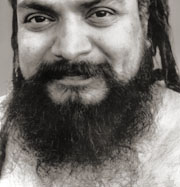Words & Terminology
No doubt there are precise nuances in meaning in the Sanskrit, a language rich in spiritual terminology. By comparison, the English vocabulary is very limited in its ability to describe spiritual matters. So it is inherently impossible to “accurately” translate a work like Yoga Vasishta into English. It’s like trying to translate the Quran into English. The subtlety and beauty of the original Arabic doesn’t translate into English. Actually, it’s a problem of any translation between any two languages.
The Mitra translation does use some English words which may have made sense in the academic, essentially European-centric Asiatic studies environment in which he studied and wrote. A century ago, academics studied Indian religion as if it was a branch of anthropology, typically with an unstated bias that non-Western culture was somehow inferior. Mitra took pains to write a detailed, annotated treatise on yoga philosophy and he included it as a Preface in the 1891 publication of Yoga Vasishta. It argues that yoga philosophy is consistent with other religions, including Christianity, Gnosticism, and ancient Greek philosophy.
Perhaps Mitra used words like “trance” or “hypnosis” for samadhi because they were more acceptable to academia. Or maybe he thought these words would best express the meaning to a late 19th century English-speaking audience. Today, many in the West have some personal experience with different spiritual traditions. Sanskrit words like yoga, pranayama, and samadhi have become familiar. So today, “trance” or “hypnosis” for samadhi is unacceptable and extremely misleading.
Other misleading usage is more subtle. Mitra most often uses “Intellect” for chit. I am no Sanskrit scholar, but intelligence has too many connotations of rational thinking or IQ. The word consciousness is more subtle, amorphous and appropriate.
Then there is the problem of God and gods. The English word for paramatman is “God”. Unfortunately, we also use the word “god” for lesser deities.
Fortunately, Vasishta often reminds us that in the end, the words not only do not count, they are a hindrance.
“Besides the names that I have already mentioned for the mind, the disputants in mental philosophy have invented many others agreeably to their diverse theories. They have attributed many names to the mind according to the views in which they want to exhibit its nature, such as calling it intellect, understanding or sensation and so forth. One takes it as dull matter and another as the living principle. Someone calls it ego, while others apply the term understanding. . . . All these various doctrines, arising at different times and in distant countries, lead at last to the same Supreme Being . . .. Ignorance of this supreme truth and misunderstanding among conflicting doctrines cause the adherents of different systems and sects to carry on endless and bitterly acrimonious disputes among themselves.” (III.96.45-47, 51-2)
“Rama, know that the words vibration and inaction, desire and no desire, and such other spiritual or theological terms, only serve to burden and misled the mind to error. Keep yourself from thinking on these. Remain in your peace and quiet, whether you attain your perfection or otherwise.” (VIA.67.35)
“So it is, O mighty armed Rama, that the scriptures are not the means to divine knowledge. Scriptures are profuse with words; divine knowledge is beyond the reach of words.” (VIB.196.10)
Which is why Shivabalayogi never gave lectures or discourses. He taught through personal experience.
![]()

